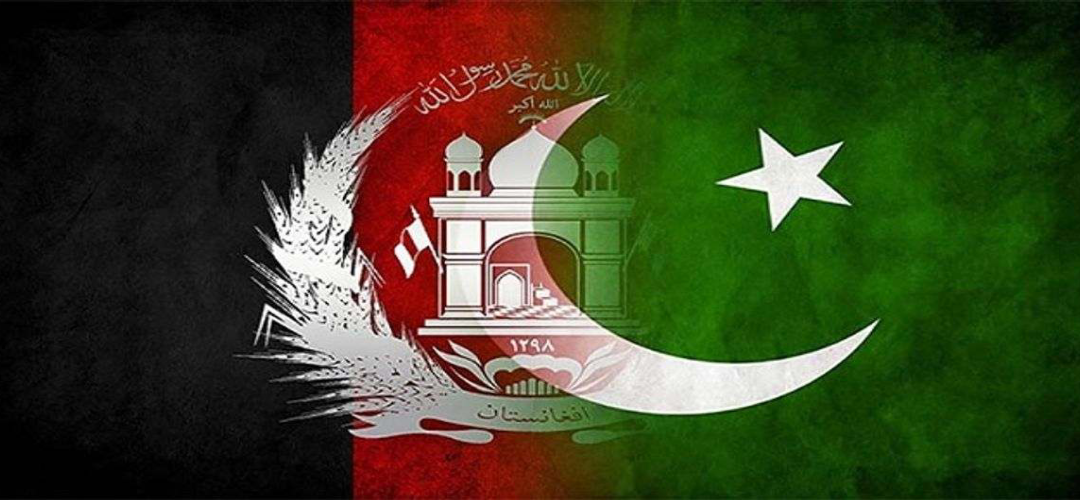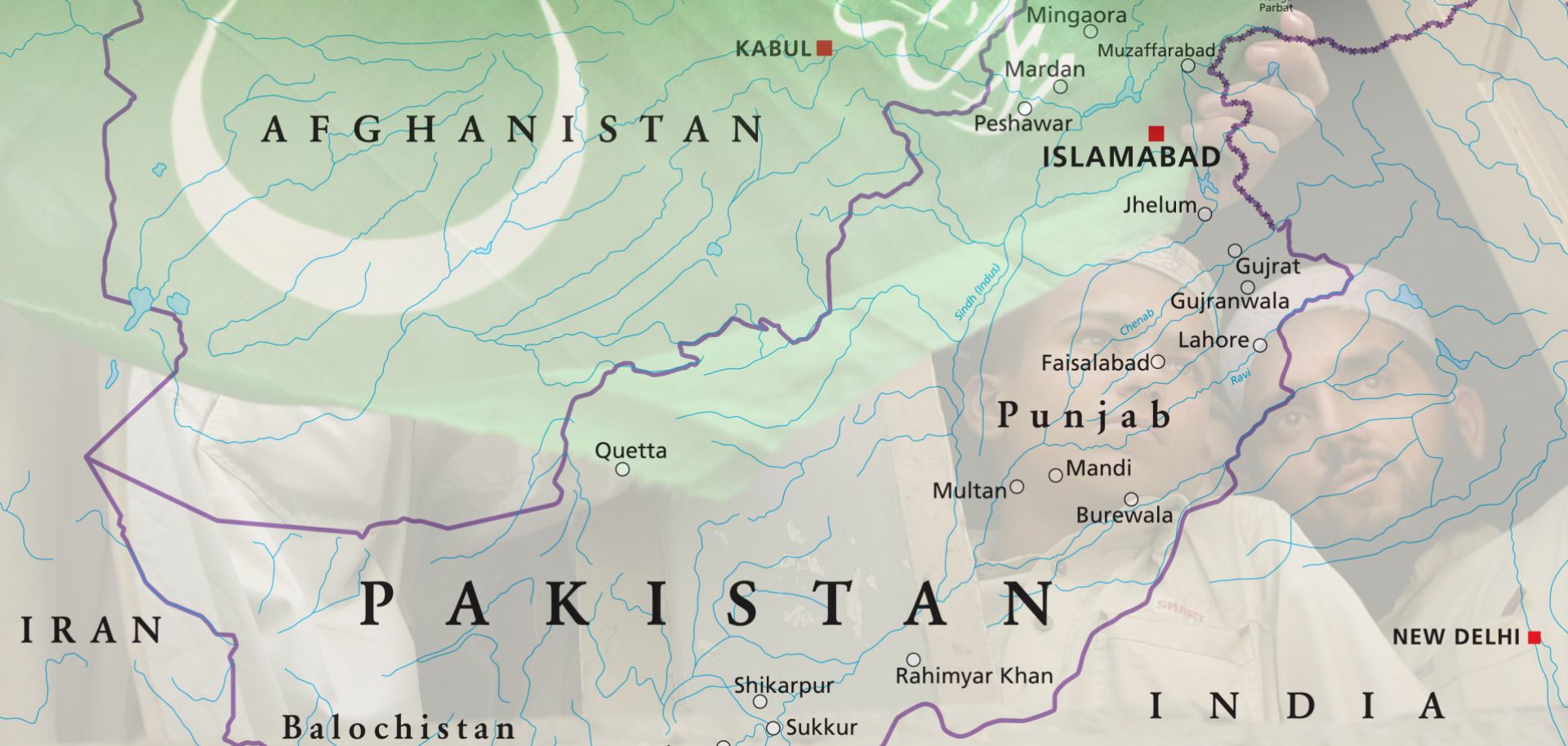Falling Apart
October 14, 2023 | Expert Insights

A complex interplay of cooperation and conflict has long marked the relationship between Pakistan and Afghanistan. This is hardly surprising considering that over their 2600-kilometre border (called the Durand line and unaccepted by Kabul), they share ethnicity, family ties and tribal enmities, language, culture and traditions.
As a dishevelled U.S. military exited in indecent haste from Kabul in August 2021, the then Pakistani Prime Minister Imran Khan gloated, “The shackles of slavery have been broken.” However, the honeymoon did not last long. Is the ‘strategic depth’ philosophy propounded by the late dictator Zia ul Haq dead?
Background
Back in power, Taliban 2.0 is an entirely different animal! As Pakistani diplomats trawled through the global diplomatic space selling the idea of rehabilitating the Taliban regime on humanitarian grounds, the Taliban regime was playing out its own agenda. It ignored Islamabad's pleas to rein in the resurgent Tehrik-e-Taliban Pakistan (TTP), freed in their hundreds from Kabul prisons and itching to get back into action, this time against the Pak Army. Evidently, Kabul has also generously opened its overflowing arsenals of captured American arms, some of the latest designs, to the TTP, which has been using them to some effect across the Durand Line.
Things really came to a head when, in a series of deadly suicide bombings in the frontier provinces of Pakistan, hundreds were killed. Pakistan has laid the blame on Afghans infiltrating from Afghanistan for all this bloodletting. The caretaker Interior Minister has claimed that out of the 24 suicide bombers, at least 14 were identified as Afghans.
Frustrated by the refusal of Kabul to control the TTP and angered by the rude and sarcastic statements coming out of foreign ministry spokespersons in Kabul (including a galling reference to the 1971 surrender of 90,000 Pakistani soldiers to India), Islamabad has been egged on to take drastic action by its strident media. It has announced that it will deport all "illegal aliens" (read Afghans) residing in Pakistan after November 01.
The core of the problem centres around Tehrik-e-Taliban Pakistan (TTP), a Sunni Islamist militant group founded in 2007 with the goal of overthrowing the Pakistani government and establishing a strict Islamic state. Having been brothers in arms with the Afghan Taliban and sharing tribal ties, TTP cadres enjoy the benefits of Pashtunwali's age-old custom that affords friendly guests safe sanctuaries. Pakistan has consistently (and justifiably) accused Afghanistan of providing a haven and support to the TTP, an allegation that Afghanistan vehemently denies.
Finding itself on the horns of dilemma, Islamabad is thrown its last trump card; expel Afghan refugees from the country. Pakistan is home to over 3 million Afghan refugees, many of whom have lived there for decades. This decision to expel undocumented Afghan refugees has been heavily criticized by human rights organizations and the United Nations, which has expressed concerns about the potential for a humanitarian crisis. Pakistan claims that undocumented Afghan refugees pose a security threat.
The humanitarian situation in Afghanistan has become even more complex due to a series of powerful earthquakes that struck the region. On June 22, 2022, a significant earthquake rocked Afghanistan, resulting in numerous casualties and widespread damage to infrastructure and homes. Tragically, the earthquake exacerbated the already dire humanitarian crisis in the country, where millions of Afghans struggle to meet basic needs. Adding to this crisis, two more powerful earthquakes hit Afghanistan on October 7 and 11, 2023, causing further devastation. These subsequent earthquakes resulted in over 2,400 casualties and injuries to thousands.

Analysis
The expulsion of Afghan refugees from Pakistan carries many significant regional implications that must be carefully considered.
First and foremost, it is highly likely to exacerbate the humanitarian crisis in Afghanistan. Already, millions of Afghans are in dire need of essential provisions like food and shelter. The forced expulsion of refugees will only worsen their plight, as these individuals will likely face severe challenges upon returning to Afghanistan. This includes limited access to fundamental necessities such as food, clean water, shelter, and healthcare. They might also be at risk of persecution and violence in their home country, many of them having sought asylum in Pakistan after the departure of the Americans for having collaborated with the NATO forces.
Secondly, this mass expulsion is poised to contribute to heightened regional social and economic instability. The influx of refugees into neighbouring nations, including Iran and Central Asian countries, could strain local resources and intensify competition for jobs and housing. Such circumstances could result in social unrest and political instability, casting a shadow over the affected regions.
Moreover, this expulsion is anticipated to increase tensions between Pakistan and Afghanistan, two nations already grappling with a strained relationship.
In addition to the aforementioned concerns, it is crucial to recognize that the expulsion of Afghan refugees is poised to have adverse repercussions across several key domains within the region.
First and foremost, the economic impact cannot be underestimated. The removal of Afghan refugees is likely to result in the departure of skilled workers and entrepreneurial individuals, potentially leading to negative consequences for the economy of both Pakistan.
Simultaneously, the development of Afghanistan, already struggling due to years of conflict and instability, faces further hurdles. The forced return of refugees to Afghanistan could impede the country's efforts to rebuild and recover. The inflow of large numbers of people without adequate resources could strain an already fragile infrastructure and service framework, making post-conflict reconstruction more challenging.
Additionally, the expulsion has implications for regional security. Creating an environment of marginalization and hardship for the returning refugees could inadvertently foster extremism and terrorism. These disenfranchised individuals may become more susceptible to recruitment by extremist groups, posing a security risk to Pakistan and its neighbouring countries. The spread of radical ideologies and the potential emergence of new security threats must be carefully considered in the decision-making process. In some ways, India is already experiencing the impact as Indian forces battle Pak terrorists in J&K armed with the latest American weaponry. Without doubt, such weapons are available today only in Afghanistan.
The earthquakes have also hampered the ability of Afghan refugees to return to their home country. The damaged infrastructure and disrupted essential services make it unsafe and difficult for people to consider returning home. As a result, it is anticipated that more Afghan refugees will opt to stay in neighbouring countries for an extended period, potentially leading to a long-term increase in the number of Afghan refugees in these regions.
Assessment
- The humanitarian situation in Afghanistan, despite the stubborn denials of its Taliban rulers, is likely to deteriorate rapidly with far-reaching consequences. It is imperative that the international community steps in to aid.
- International assistance should focus on delivering humanitarian aid to those affected by the earthquakes and aiding in reconstructing infrastructure and homes. Moreover, efforts should be directed towards facilitating the safe return of Afghan refugees to their homeland when conditions allow. The earthquakes have raised questions about the necessity for regional cooperation and the efficient management of shared resources, emphasizing the interconnected nature of these complex issues.
- As the region grapples with these multifaceted challenges, it is essential for both Pakistan and Afghanistan to find a common ground that respects the rights of refugees while addressing the legitimate security concerns of the host country.








Comments